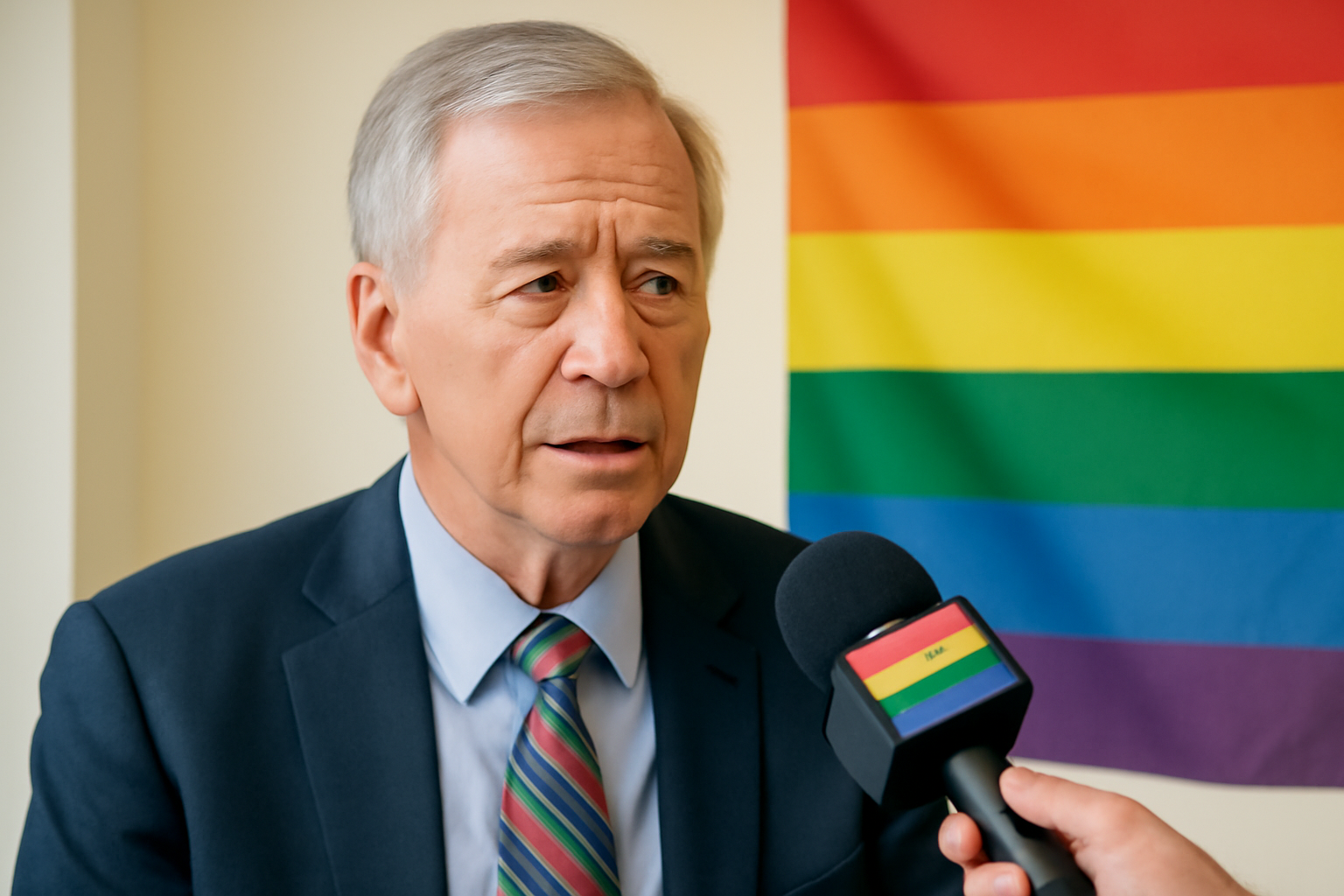
In a recent exclusive interview, a former official from the United States Agency for International Development (USAID) shed light on the far-reaching consequences of the recent decision to dissolve its LGBTQ+ programs. This decision, the official warns, could have detrimental effects not only within the United States but also across the globe, where many vulnerable communities rely on these initiatives for support and protection.
Historical Context of USAID's LGBTQ+ Programs
USAID has long been at the forefront of international development efforts, focusing on improving health, education, and economic opportunities for marginalized groups worldwide. Over the past decade, the agency had made significant strides in supporting LGBTQ+ communities through targeted programs aimed at reducing discrimination, enhancing healthcare access, and fostering inclusive economic growth.
Under the leadership of various administrations, USAID worked tirelessly to integrate LGBTQ+ rights into its broader human rights agenda. Programs were established to provide crucial funding and technical assistance to local organizations advocating for LGBTQ+ rights. These efforts were particularly impactful in regions where LGBTQ+ individuals face severe discrimination and hostility.
The Decision to End LGBTQ+ Initiatives
The recent decision to dismantle these programs has alarmed many advocates and former officials who fear the reversal will undo years of progress. The former USAID official, who played a pivotal role in designing and implementing these programs, expressed deep concern about the message this sends to the international community.
"Ending these programs not only weakens our diplomatic standing but also abandons some of the most vulnerable populations worldwide," the former official stated. "We are essentially turning our backs on those who need our support the most."
Impact on Global LGBTQ+ Communities
For many LGBTQ+ individuals and organizations worldwide, USAID's support was more than financial; it was a lifeline. The funding enabled grassroots organizations to operate in hostile environments, providing safe spaces, legal assistance, and healthcare services that are otherwise inaccessible.
In addition to financial support, USAID's involvement often lent legitimacy and protection to local activists. By partnering with a prominent U.S. agency, these organizations could operate with a degree of safety and influence otherwise unavailable to them in countries with oppressive anti-LGBTQ+ laws.
"Without USAID's backing, many of these groups will struggle to survive," the former official warned. "This decision could push countless LGBTQ+ individuals back into the shadows, at a time when they most need visibility and support."
Consequences for Global Development Goals
Moreover, the decision to end LGBTQ+ programs could undermine broader global development goals. Discrimination against LGBTQ+ individuals often exacerbates issues like poverty, health disparities, and educational inequality. By supporting LGBTQ+ rights, USAID was not only addressing discrimination but also contributing to more inclusive and sustainable development outcomes.
The former official emphasized that LGBTQ+ inclusion is critical for achieving the United Nations' Sustainable Development Goals. "Leaving LGBTQ+ communities behind in our development efforts harms everyone," they noted. "Progress cannot be truly inclusive if it overlooks such a vital part of our global society."
Moving Forward: What Can Be Done?
As the global community grapples with this shift, many advocates are calling for renewed efforts to support LGBTQ+ communities. Former USAID staff, along with activists and international partners, are exploring alternative ways to continue the mission of inclusion and equality.
"We must not lose hope," the former official urged. "While this is a setback, it is also a call to action for all of us who believe in equality and human rights. We must come together, innovate, and find new ways to support those who are most in need."
As this issue evolves, it remains crucial for both governmental and non-governmental organizations to collaborate in building a world where LGBTQ+ rights are recognized and respected. In doing so, we uphold the principle that all people, regardless of their identity, deserve dignity and equality.
The international community must remain vigilant and committed to advancing the rights of LGBTQ+ individuals everywhere, ensuring that progress made over the years is not lost, but rather built upon for a more inclusive future.
Related Posts
Triumphant Trans Woman Wins Legal Battle and Inspires Others to Stand Up for Their Rights
Breaking new ground: a landmark victory in transgender rights After battling in courtrooms and enduring endless challenges, Diana Portillo, a transgender woman, has secured a monumental victory in her decade-long fight against workplace discrimination. The result? Nearly $1 million awarded in a historic settlement. But this isn't just a win on paper—it represents a powerful precedent in combati [...]
Pride Month in Latin America: Protests and Demands for Equality
**Celebrating Pride and advocating LGBTQ+ rights in Latin America** Pride Month in Latin America was a lively mix where celebration met activism. Communities united, not just throwing a party but making a stand—demanding equality and pushing governments toward better protection and rights recognition. Throughout Latin America, pride events erupted in marches and cultural displays, each with a c [...]
Transgender Erasure Actions Implemented by National Park Service
```html Trump administration's impact on national park service and transgender recognition The Trump administration made notable moves in undermining transgender representation, which included directing agencies like National Park Service not include "T" and "Q" when they refered “LGBTQ” in any official communication. This move seems part a broader plan by this administration aimed at reducin [...]